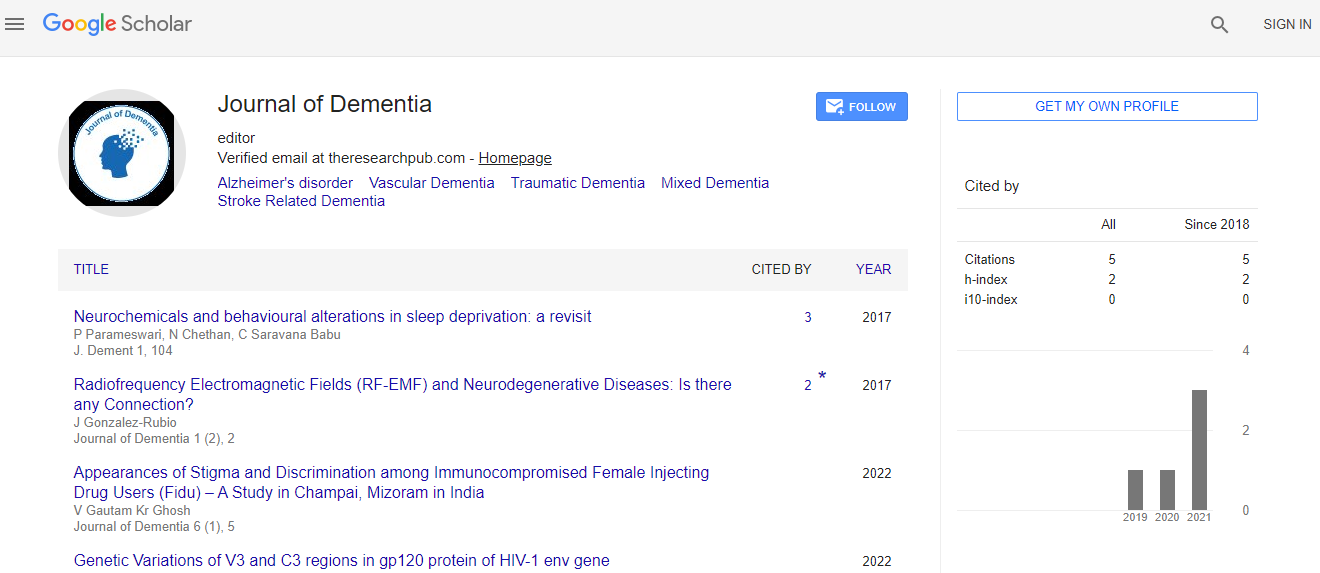Understanding Acute Stress Disorder: Causes, Symptoms, and Treatment
*Corresponding Author: Veena Tanuja, Department of dementia Science and Asperger Syndrome, University of SR Technology, India, Email: veena_t@gmail.comReceived Date: Nov 01, 2023 / Accepted Date: Nov 28, 2023 / Published Date: Nov 28, 2023
Citation: Tanuja V (2023) Understanding Acute Stress Disorder: Causes, Symptoms, and Treatment. J Dement 7: 192.
Copyright: © 2023 Tanuja V. This is an open-access article distributed under theterms of the Creative Commons Attribution License, which permits unrestricteduse, distribution, and reproduction in any medium, provided the original author andsource are credited.
Abstract
Acute Stress Disorder (ASD) is a psychological condition characterized by the development of distressing symptoms following exposure to a traumatic event. This disorder typically manifests within the first month after the trauma and may persist for varying durations. The diagnostic criteria include intrusive memories, negative mood alterations, dissociation, avoidance behaviors, and heightened arousal. ASD serves as a precursor to Post-Traumatic Stress Disorder (PTSD), with a significant proportion of individuals experiencing a transition from ASD to PTSD if symptoms persist. This comprehensive review explores the etiology, prevalence, risk factors, and neurobiological underpinnings of ASD. The paper delves into the clinical presentation and assessment strategies, highlighting the importance of early identification and intervention. Various therapeutic approaches, including cognitive-behavioral therapy, pharmacotherapy, and emerging treatments, are scrutinized for their efficacy in mitigating ASD symptoms and preventing the progression to chronic PTSD. Furthermore, the paper examines the societal impact of ASD, emphasizing its implications for healthcare systems, workplace environments, and interpersonal relationships. A nuanced discussion on the cultural and contextual factors influencing the expression and recognition of ASD is also presented. The review concludes with a forward-looking perspective, identifying gaps in current research and proposing avenues for future investigations to enhance our understanding and treatment of Acute Stress Disorder.

 Spanish
Spanish  Chinese
Chinese  Russian
Russian  German
German  French
French  Japanese
Japanese  Portuguese
Portuguese  Hindi
Hindi 